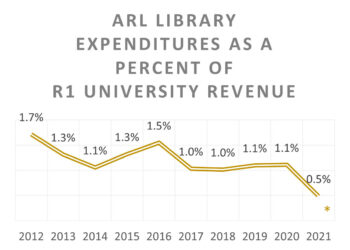
This…
Due to the lapse in government funding, the information on this web site may not be up to date, transactions submitted via the web site may not be processed, and the agency may not be able to respond to inquiries until appropriations are enacted.
Updates regarding government operating status and resumption of normal operations can be found at http://www.usa.gov.
Is what greets you if you visit PubMed Central (As of 21:30 UK time 1/10/2013).
If you go to www.data.gov you will be redirected to notice.usa.gov and you will be greeted by this notice:
Due to the lapse in federal government funding, this website is not available.
We sincerely regret this inconvenience.For information about available government services, visit USA.gov.
On The Scholarly Kitchen, you will find writing that subjects PubMed Central to some pretty hard scrutiny. But regardless of that fact, today is really a rather depressing day. Because today is the day that an uncomfortable truth about government funding of direct access to research has been revealed. If the government no longer wishes to fund it, then it can disappear very quickly indeed. The servers go down on PubMed Central and it’s an open question as to whether there is anybody around to reboot them. Data.gov seems to have been completely taken down proactively. Think about that.
And although this is the biggest example out there right now, the reality is, that there are sites out there right now that are effectively ghosts, because the funding stream ended – just waiting for somebody to get around to turning off the servers that power them. Information just waiting to be lost. In a previous existence, I was party to more than one conversation that went something like this;
“Hi there, you are a great publisher that has a good reputation in [insert area]. We’ve got this site. It’s full of great content. There’s an obvious synergy between what you and what we’ve been doing. Thing is, our money has run out. Is there any chance you would be willing to support this?”
Those are hard conversations.
There’s all sorts of stuff being written about why this has happened. And there’s plenty of places you can go to enter the hurly-burly of that debate if you so wish. But not here. What matters here, is that it has happened. Over on Twitter as I write this, there’s a line of thought about the need for a European PubMed Central. You can see the thinking, one place goes down, so some sort of mirror would be good. Except that of course that would be funded by some sort of EU funding mechanism in all likelihood and just for reference The EU budgets have failed their audit 18 consecutive times.
Over in Texas, some members of the State Board of Education wish for science text books in public schools to be re-written to cover creationism and other topics. From a distance, it looks alarming that government could have such a direct hand in the specification of the kind of scientific information that is disseminated. You can take this as an anti Open Access thing if you want, but seriously, I’m very uncomfortable with the idea that research could disappear or be modulated either through stupidity, mendacity or simple incompetence.
Today we’ve seen a direct effect of what happens when government cash ceases to flow. Thank about that.
Discussion
32 Thoughts on "October 1st 2013: Government Dysfunction Impacts the Dissemination of Scholarly Research"
From The Atlantic:
http://www.theatlantic.com/business/archive/2013/10/the-saddest-paragraph-youll-read-about-the-government-shutdown-today/280174/
At the National Institutes of Health, nearly three-quarters of the staff was furloughed. One result: director Francis Collins said about 200 patients who otherwise would be admitted to the NIH Clinical Center into clinical trials each week will be turned away. This includes about 30 children, most of them cancer patients, he said.
If the goal was to prevent people from getting healthcare, then mission accomplished.
Another very important source of US government-supported publishing went dark yesterday: The US Department of Commerce shuttered the Census website:.
Due to the lapse in government funding, census.gov sites, services, and all online survey collection requests will be unavailable until further notice.
Not to rub it in (but I will!), my journal’s website, based upon subscriptions, remains up and running today serving everything our authors have produced for the past 49 years. In today’s climate, a government funding business model is proving unreliable. And, this is before one even considers the chilling possibility of censorship.
This is worth remembering for all the reasons outlined here. In addition, since JMLA is hosted entirely on PMC, and was due to publish their October issue just now (or soon), it would be interesting to know how they feel about their “vendor” suddenly running out of money and suspending operations.
The Journal of Biomolecular Techniques also uses PMC as its primary publisher, and frames the PMC site in their own, so it is now showing the PMC “Due to a lapse in government funding . . .” message: http://jbt.abrf.org/index.cfm/page/jbt_toc.htm.
If someone had suggested this might be a concern with PMC a few years ago, they would have been laughed out of the room. Now that it’s come to pass, we really need to face the reality it represents — and the long-term problems with government financing across the world we’re facing.
Indeed, there have been over twenty shutdowns in the last forty years. But the deeper point which David Smith makes is that all government funding is tenuous. I know of several major science and science education government portals that have not been updated for over seven years. We call these orphans. The US government cannot commit funds beyond the present Congress, which is always less than two years old. Most long term projects die.
Ironic that CHORUS has gone out of it’s way to build in a complicated dark archive for federally funded papers because the GOVERNMENT AGENCIES don’t trust the publishers to keep access to federally funded research available to the public. Congressmen Grassley and Issa should take a look at that.
Yesterday we received an email from one of our authors who works for the US government asking us to send his proofs to his personal email address; apparently he was not permitted to conduct business using his government email account while the government was shut down. Another way the shut down is affecting scholarly publishing.
The tweet about a “Euro PubMed” was mine, but I fear my point was lost in 140 characters.
EuroPMC does of course provide an alternative option for searching content should PubMed itself go down. However, EuroPMC is itself dependent on NCBI/Medline deposits (rather than receiving these directly) and so would not be updated in the event of a US shutdown. It is thus not an effective substitute – merely a mirror.
The question is therefore whether we need an additional indexing service (a ‘Euro PubMed or, better, ‘Euro Medline’) that provides robustness to the system by independently replicating the most critical function of NCBI/PubMed – rather than the existing EuroPMC that just provides an alternative downstream display of the same content.
PMC Canada (http://pubmedcentralcanada.ca/pmcc/) would seem to be in the same boat.
Jonathan Eisen has a gallery of affected websites up on his blog:
http://phylogenomics.blogspot.com/2013/10/the-government-shutdown-of-science.html
Sites that are completely down include:
USDA
USGS
NIST
NOAA
NIFA
NSF
Happily DOE, which hosts several government wide and international science websites, as well as it’s own dozen or so, is not down. Just a coincidence.
Govt funding (not to mention organizational funding) is always tenuous. We’ve been writing about this issue for a long time on Free Government Information (http://freegovinfo.info). 37 libraries and the GPO have collaboratively built LOCKSS-USDOCS (http://lockss-usdocs.stanford.edu), the distributed preservation network focusing on the content in FDsys.gov. Today is a sad day, but it should also be a wake-up call that digital preservation of the govt- and scholarly record is an ongoing group effort.
As a resident of Texas, I have sent a link to this posting to Senator Ted Cruz and suggested that he read it.
Hopefully you used single syllable words – and maybe a few cartoons.
More than anything, this illustrates the importance of _not_ putting all of the publication eggs in one basket. The same thing that is happening to the government websites could happen to any publisher’s website in the wake of a business closure, or a capricious executive decision, or any other number of scenarios.
I consider myself fairly “moderate” on the OA zealotry scale, as a volunteer editor for PLOS ONE and PeerJ who publishes OA whenever feasible but but who also has published in non-OA journals over the past year. Nonetheless, this situation makes me agree wholeheartedly with my colleagues who argue for allowing broader mirroring, mining, and copying of journal articles (beyond CLOCKSS and LOCKKS). A publication lockout could happen just as easily with a government shutdown as a private publisher shutdown.
Archiving and ensuring perpetual access to scholarly works is an important part of the services publishers provide. More on this here:
http://scholarlykitchen.sspnet.org/2012/09/10/and-another-thing-a-postscript-to-the-proposed-list-of-60-things-publishers-do/
It’s also a key to the CHORUS proposal, where archival backups are set up in case the publisher’s version is no longer available:
http://scholarlykitchen.sspnet.org/2013/09/19/chorus-comes-into-focus/
So I’d like to echo David C’s points above. CHORUS, as I understand it is a genuine attempt to provide 1) savings to the governments of the world who want to make material available according to various open access policies and 2) a pretty damn robust method of ensuring access. It’s right there in just about the first output as the project gets of the ground,
It’s also worth noting that publishers have contracts with various parties that often include phrases like “perpetual access”. The point is that we do think about contingency,even if it might be as crude as – “if it all goes pear shaped, rip ’em a hard drive with all the stuff on it and they can go stick it on the network”.
But back to CHORUS – if it was up and running right now. I wouldn’t have been able to write this blog. I do hope various skeptics about CHORUS are pondering that fact. Of course it has to demonstrate viability and delivery, but it is a rather good idea I think.
If anybody bothered to check, both PubMed Central and PubMed are up and available for searching. My understanding is that only the submission of new material has been halted during the shutdown. So the dissemination of scholarly research, as least for biomedicine, has been slowed, but not eliminated.
Clearly the author of this post bothered to check, since he quotes the actual text from PMC stating exactly what is re-stated in your comment. Always good to read the articles before commenting.
That said, for those who rely on resources like PMC, their knowledge of current research stops as of today, for who knows how long? And for those who rely on information from other government resources (many listed in the comments above), the websites and the data repositories themselves have gone dark and are not available at all. There is a world outside of biomedicine, but even there, this is still problematic.
I did read the article and the comments, most of which gave the impression that PubMed Central was shut down, which is not the case. Indeed, other government databases may be down, but not PMC or PubMed.
Fortunately, no private company has ever gone out of business or been shut down because of labor disputes. So at least we have that going for us.
There’s likely a reason the title uses the verb “Impacts”, rather than “Prevents” or “Ends”. And the author goes to great lengths to contrast the current state of PMC with that of data.gov, one still visible but frozen in time, the other gone altogether.
Fortunately, no private company has ever gone out of business or been shut down because of labor disputes.
Point taken, which is why, had you read the comments, you’d know more about the enormous efforts that publishers take to ensure perpetual access and availability of archival backups of published works.
Let’s not paint all publishers with such a broad brush. For instance eLife “published” their first papers on PMC. PeerJ, who also boast minimal hosting costs, use Amazon’s cloud service, that has notoriously taken offline Netflix and Instagram before.
To be fair, PeerJ has partnered with CLOCKSS and LOCKSS for archiving (https://peerj.com/about/partnerships/) and eLife uses LOCKSS (http://www.lockss.org/community/publishers-titles-gln/). Both are privately held, and like any responsible publisher, have taken steps to maintain archives and perpetual access.


